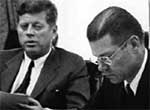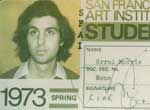By Liam Lacey
The Globe and Mail - April 29, 2005
The most critically respected American documentary filmmaker of the last 25 years, Errol Morris, has been selected as this year's Hot Docs winner of its Outstanding Achievement Award. A former private investigator and philosophy student, Morris came to prominence with the 1988 tour-de-force, The Thin Blue Line, an investigation into the wrongful arrest of a drifter charged with killing a Dallas policeman.
He had already completed two well-received documentary films in the previous decade: Gates of Heaven (1978) about California pet cemeteries, and Vernon, Florida about eccentric elderly people in a small southern town. His four subsequent documentaries chronicled different aspects of obsessive character: A Brief History of Time (1992) about scientist Stephen Hawking, Fast Cheap & Out of Control, his study of four men in unusual professions; Mr. Death: The Rise and Fall of Fred A. Leuchter Jr., and his interview with the man considered the architect of the Vietnam War, The Fog of War: Eleven Lessons From The Life of Robert S. McNamara (2003). Here are some of Morris's comments on the mini-retrospective of four of his films that are showing at this year's Hot Docs.
Vernon, Florida, (1981). A portrait of a small northwest Florida town, a worm farmer, a master turkey hunter, a preacher obsessed with the word "therefore" and a couple who belief the radioactive sand they gathered from New Mexico is growing in a jar.
"Like a lot of my projects, Vernon, Florida came out of my failure to do what I had set out to do, which was a story about insurance fraud [the community had a freakish number of "accidental" amputations] which I wanted to call Nub City. I still intend to do it as a horror movie. Instead, I stumbled on these amazing characters, who I remain very, very fond of."
The Thin Blue Line, (1988). A drifter is in jail accused of murdering a policeman, but the case against him has serious cracks in it.
"I've read that the movie shows I'm some sort of postmodernist. This isn't the case. I believe in truth but I don't believe that showing the truth requires a shaky camera, natural lighting and bad sound.
The film has been widely imitated, even on reality television so I'm told, but one thing about the dramatic re-enactments I think a lot of people missed was that they were used ironically, to illustrate untruths, to show how what we see often leads us into error. . . . I'm really proud of the movie as a movie, and of course, because it got a man out of prison."
A Brief History of Time, 1991. Scientist Stephen Hawking, confined to a wheelchair and able to talk only through a computer, travels to the furthest reaches of space and time in his imagination.
"This is one of my movies I'm interested in updating. I remember having dinner with Stephen and [his wife] Elaine, and I said, "Your book isn't a book about the science of relativity and cosmology. It's a romance." Elaine said, 'Oh Errol,' and Stephen said, 'Yes.' "
Fast Cheap & Out of Control, 1997. Morris's interwoven stories of four men: a topiary designer, a lion tamer, an expert on mole rats and a robot specialist.
"For me, it's about what a lot of my work is about, creating a character in their specific situation and also revealing their mental landscape, a model of their universe. At the heart of it, this was made when my parents were dying and I was fascinated with the way mortality interferes with our plans whether we like it or not."
Mr. Death: The Rise and Fall of Fred. A. Leuchter Jr., 1999. An eccentric who has designed execution devices for prisons is hired to go to Auschwitz to prove the Holocaust didn't happen.
" The issues that interest me are so well defined in him -- is he self-deceiving? Is he a con-man? Is he evil? Is he a completely obtuse creature who, despite his seeming intelligence, just can't get it? At risk of getting into trouble, I see myself in him. Maybe I just don't get it. One of things I believe is that the truth is knowable but we have an interest in not knowing it."
Recently, says Morris, he was speaking at Brandeis University about the capacity for self-delusion in connection with a number of his films. He mentioned the couple in Vernon, Florida: "The one thing we know about sand is that it doesn't grow."
A man in the audience pointed out that the "sand" from that part of New Mexico was gypsum which can absorb water.
"So I started thinking: They took this sand from the desert and came back to their humid Florida town, and they open it from time to time and the humidity gets in and is absorbed by the gypsum. I realized I was the one who was deluded."
Sand That Grows and Other Stories







